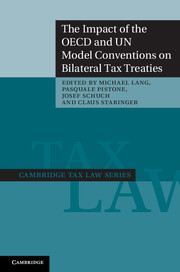Book contents
- Frontmatter
- Contents
- Contributors
- Preface
- Table of cases
- Table of statutes
- General report
- 1 Argentina
- 2 Australia
- 3 Austria
- 4 Belgium
- 5 Brazil
- 6 Canada
- 7 Chile
- 8 China
- 9 Colombia
- 10 Croatia
- 11 The Czech Republic
- 12 Estonia
- 13 Finland
- 14 France
- 15 Germany
- 16 Hong Kong
- 17 Hungary
- 18 India
- 19 Italy
- 20 Lebanon
- 21 Liechtenstein
- 22 The Netherlands
- 23 New Zealand
- 24 Norway
- 25 Peru
- 26 Poland
- 27 Portugal
- 28 Romania
- 29 The Russian Federation
- 30 Serbia
- 31 Slovakia
- 32 Slovenia
- 33 Spain
- 34 Sweden
- 35 Uganda
- 36 The UK
- 37 The USA
- Index
- References
9 - Colombia
Published online by Cambridge University Press: 05 November 2014
- Frontmatter
- Contents
- Contributors
- Preface
- Table of cases
- Table of statutes
- General report
- 1 Argentina
- 2 Australia
- 3 Austria
- 4 Belgium
- 5 Brazil
- 6 Canada
- 7 Chile
- 8 China
- 9 Colombia
- 10 Croatia
- 11 The Czech Republic
- 12 Estonia
- 13 Finland
- 14 France
- 15 Germany
- 16 Hong Kong
- 17 Hungary
- 18 India
- 19 Italy
- 20 Lebanon
- 21 Liechtenstein
- 22 The Netherlands
- 23 New Zealand
- 24 Norway
- 25 Peru
- 26 Poland
- 27 Portugal
- 28 Romania
- 29 The Russian Federation
- 30 Serbia
- 31 Slovakia
- 32 Slovenia
- 33 Spain
- 34 Sweden
- 35 Uganda
- 36 The UK
- 37 The USA
- Index
- References
Summary
The relevance of the OECD and UN Model Conventions and their Commentaries for the interpretation of Colombian tax treaties
Colombia's entrance into the double taxation agreement world has been fairly recent and thus its involvement with the existing Model Conventions is limited to a few treaties and even fewer administrative and judicial decisions. The decision to begin the creation of a double taxation treaty network was promoted by President Álvaro Uribe Vélez in 2004, after a long period of non-treaty policy implemented under the philosophy of protecting the Colombian tax base. President Uribe's policy of creating a competitive business environment for investors caused the re-evaluation of Colombia's position regarding double taxation agreements. Both DIAN (the Colombian Tax Administration) and the Colombian Ministry of Finance gave up their reluctance to negotiate treaties, convinced by the idea that revenue loss caused by the concessions granted in a treaty by a capital importing state like Colombia would be compensated by the increase in foreign direct investment (FDI) that the treaty would be thought to bring.
In 2005 the Ministry of Trade thus issued a priority list of major trading partners for the parallel negotiations of bilateral investment treaties (BITs) and treaties. Based on this list, the Colombian Ministry of Finance created a team of public employees (a DIAN director and two other DIAN employees in charge of domestic audits) for the immediate negotiation of a treaty with Spain. Due to the urgency of negotiations, Colombian officials decided to implement the OECD Model Tax Convention on Income and on Capital (OECD Model) as the only available tool for negotiating with OECD Member countries. Although Colombia was at the time – and still is – a party to the Andean Community of Nations (CAN), the government decided not to implement the source-based CAN Model, as none of the other Members had applied it in their treaties and it was a known fact that most OECD Member countries would not even consider the CAN Model as a reference for negotiating a bilateral treaty with Colombia. Furthermore, the difficulties associated with integration in South America were often reflected in the lack of application of Andean Community Decision 578. The withdrawal of Chile and Venezuela left only Bolivia, Colombia, Ecuador and Peru, and most of the above were constantly discussing whether the decision would be applicable without a domestic law to adopt it.
- Type
- Chapter
- Information
- Publisher: Cambridge University PressPrint publication year: 2012
References
- 4
- Cited by



